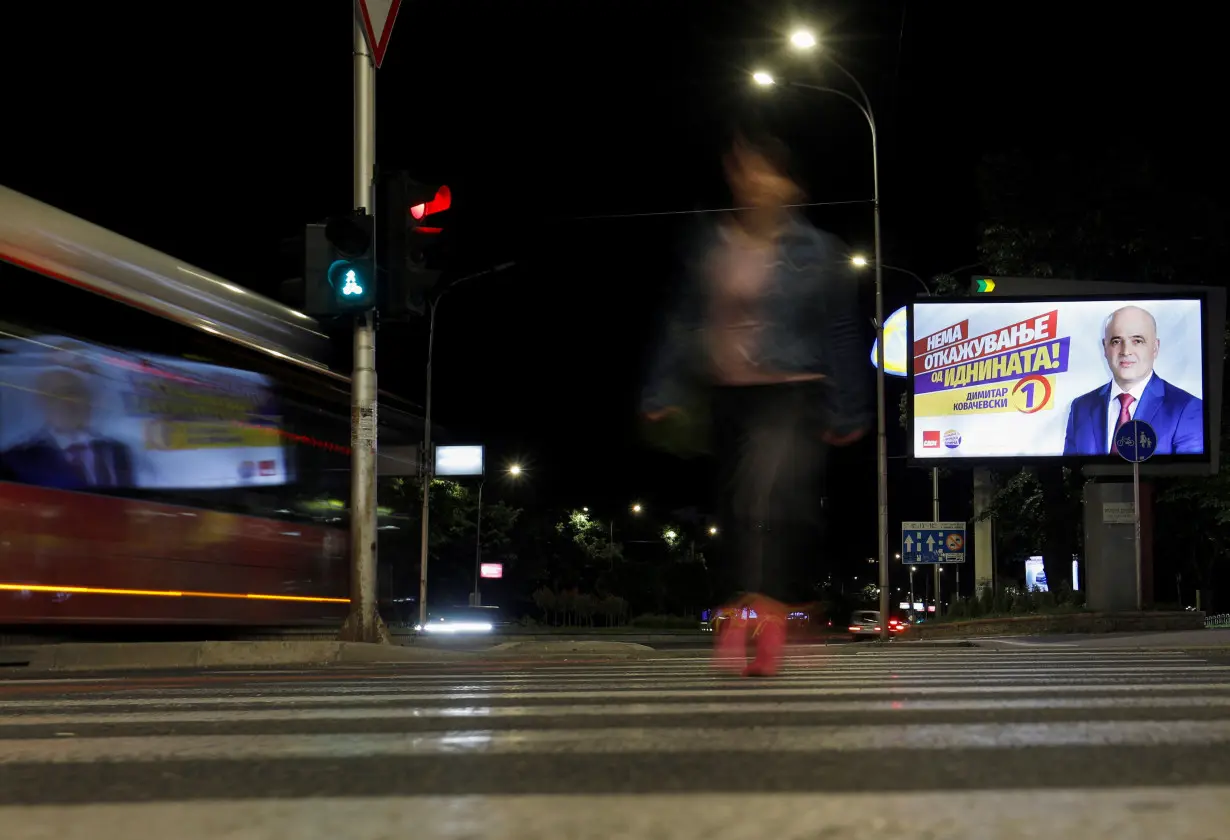By Aleksandar Vasovic and Fatos Bytyci
TETOVO, North Macedonia (Reuters) - Ekrem Ramadani used to work in the once flourishing textile industry in the town of Tetovo in North Macedonia. Today, 76 and still working, he scrapes by selling beans, onions and garlic from his modest farm.
He has watched Tetovo, set in a lush valley west of the capital Skopje, slowly decline following Yugoslavia's collapse in 1991 and then as hopes of joining the European Union faded.
"Politicians promised us Europe, but we have nothing out of that. We did not move,” Ramadani said as he sat as his market stall.
North Macedonia, a small Balkan country of 2 million people, will vote on May 8 in parliamentary elections in which support for the opposition has been buoyed by frustration about the failure to join the EU, falling living standards and alleged corruption.
The vote pits the nationalist opposition VMRO-DPMNE party against the ruling Social Democrats (SDSM). The signs are not good for SDSM. In a first-round vote last month for the mostly ceremonial presidency, seen as a litmus test for the parliamentary poll, SDSM-backed incumbent Stevo Pendarovski won just 20% of votes, with the VMRO-DPMNE's candidate Gordana Siljanovska-Davkova getting 40%.
A run-off vote for the presidency is also scheduled for May 8.
"The election result is directly related to that (slow EU accession)," Pendarovski acknowledged in an interview.
In 2001 NATO pulled North Macedonia back from the brink of civil war during an ethnic Albanian insurgency and promised faster integration into the EU and NATO.
It joined NATO in 2020 but it has made little progress with the EU, in part because of opposition from EU members Greece and Bulgaria.
A 2017 agreement to change the country's name from Macedonia to North Macedonia ended the dispute with Greece, but Bulgaria lodged a veto in 2020 over history and language issues, which many North Macedonians say attacks their national identity.
The economy grew just 1% last year, reflecting delays in construction projects. The World Bank expects a rebound to 2.5% in 2024.
Petar Arsovski, a Skopje-based analyst says the economy and the rule of law are the biggest problems.
"The pervasive and metastasised clientelism is in every pore of the country," he said.
In many ways Tetovo's failed promise symbolises that of North Macedonia.
The textile industry has shrunk since the 1990s as it struggled to find new markets. Unregulated construction has led to the random spread of houses, some of which have been built in parks or on footpaths. Many are not connected to the sewage network.
In 2018, the World Health Organization listed it as one of Europe's most polluted cities in part thanks to old cars. As in much of the Balkans, the young have emigrated abroad.
Construction worker Sulejman Hajdari, 23, said he plans to move to Germany soon.
"I was there for few weeks and found a good job. I am just waiting for a permit. I will never come back here."
(Editing by Edward McAllister, William Maclean)




